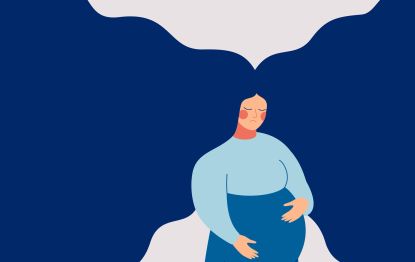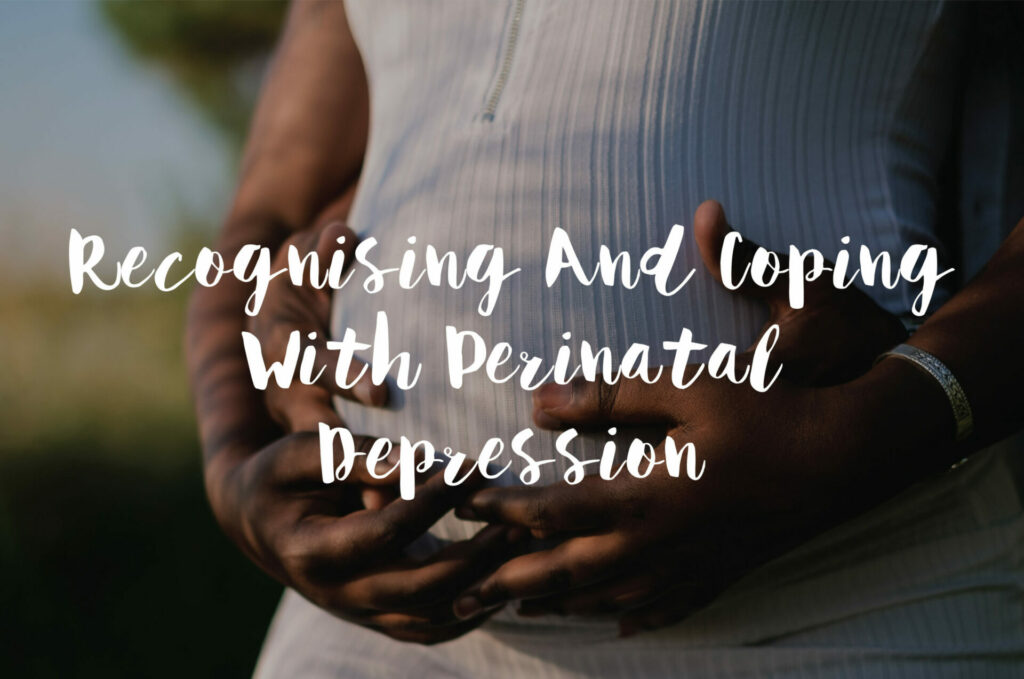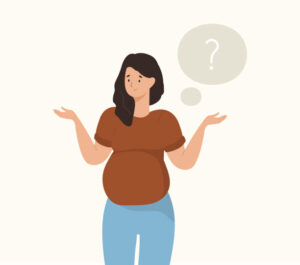Prenatal depression is a serious mental health condition that can develop during pregnancy. It affects the mood, emotions, and thinking of a pregnant woman. If left untreated, prenatal depression can lead to major problems for both mother and child. In this article, we will discuss all prenatal depression – what it is, what causes it, and how to treat it.
Contents
What Is Prenatal Depression?

Prenatal depression is an umbrella term that refers to a group of mood disorders that can occur during pregnancy. Symptoms can include feelings of sadness, hopelessness, and irritability; difficulty sleeping or concentrating; changes in appetite or weight; and recurrent thoughts of suicide.
While most cases of prenatal depression go undetected, it’s important to get help if you experience any of the above symptoms. There are several options available, including talk therapy, medication, and self-help groups.
If you’re worried about your mental health during pregnancy, talk to your doctor.
Symptoms of Prenatal Depression

Prenatal depression is a serious form of depression that can occur during the prenatal stage of a person’s life. The symptoms of prenatal depression can include:
Feelings of sadness, emptiness, and hopelessness
This is one of the most common symptoms of prenatal depression and can be present even if the woman does not have a history of depression.
Decreased interest in activities that were once enjoyed
Many women experience a decrease in interest in activities they used to enjoy during their regular lives. This may include decreased appetite, sadness, and fatigue.
Sleep problems
Women with prenatal depression may have difficulty sleeping, which can lead to further depressive symptoms. Symptoms of insomnia may include: difficulty falling asleep, waking up frequently throughout the night, feeling tired during the day, and feeling restless or agitated when trying to sleep.
Weight gain
Pregnant women often experience an increase in appetite, which can lead to weight gain. Some pregnant women also experience changes in their eating habits that can lead to weight gain.
Decreased energy
Many pregnant women experience a decrease in energy, which can make it difficult to take care of themselves and their babies.
Trouble concentrating
Many pregnant women experience difficulty concentrating, which can make it hard to focus on tasks at work or school.
Cravings for sweets or carbohydrates
Many pregnant women experience cravings for sweets or carbohydrates, which can make it difficult to stick to a healthy diet.
Mood swings
Women with prenatal depression may experience frequent mood swings, which can make it difficult to maintain a stable mood.
Causes of Prenatal Depression

Prenatal depression is a serious mental disorder that can affect any pregnant woman, but it is more common in women who have e history of depression. It is estimated that 1-in-25 pregnant women will experience prenatal depression, and the condition is most common in first-time mothers.
There are many possible causes of prenatal depression, but some of the most common include:
Depression in the mother
Sometimes depression in the mother can cause changes in the baby’s brain, including the development of prenatal depression. The mother may suffer from depression or anxiety, which can directly affect the baby’s brain development. The mother’s hormones may be out of balance, which can also affect the baby’s brain development. The mother’s stress and anxiety can cause her to be less attentive to her baby and more likely to hurt or neglect them.
Fetal alcohol spectrum disorder (FASD)
Fetal alcohol spectrum disorder is a condition caused by alcohol exposure during pregnancy. It can lead to prenatal depression, as well as other problems down the road such as ADHD and learning disabilities. Also, children with FASD are more likely to have problems with alcohol and drug abuse than adults.
Genetics
Prenatal depression can also be caused by genetic factors. Some people are more prone to developing the condition, and it can be passed down from parent to child. These genetic factors may be something you and your doctor don’t know about yet.
Trauma during pregnancy
Trauma can lead to several problems in both the mother and the baby, including prenatal depression. Also, Trauma can include anything from physical violence to emotional abuse. If the trauma is severe, it may be classified as post-traumatic stress disorder (PTSD). PTSD can cause prenatal depression, as well as other psychological problems.
Chromosomal abnormalities
Prenatal depression can occasionally be caused by chromosomal abnormalities, such as Down syndrome or trisomy 18.
Substance abuse
Prenatal depression can also be caused by Substance Abuse. This can include alcohol, marijuana, or other drugs. These substances can interfere with the mother’s brain chemistry, causing her to develop prenatal depression.
Problem with the baby’s health
Prenatal depression can also be caused by a problem with the baby’s health. This might include problems with the baby’s brain or spine, birth defects, or genetic abnormalities.
How Can Prenatal Depression Impact Someone?
There is no one answer to this question as the effects of prenatal depression can be quite varied depending on the individual. However, some of the common effects of prenatal depression can include: difficulty concentrating, decreased energy, increased anxiety and mood swings, and eating disorders.
If you are experiencing any of these symptoms, it is important to seek help. There are many resources available to pregnant women who are struggling with prenatal depression, including talk therapy, medication, and self-care tips. If you have been diagnosed with prenatal depression, it is important to speak with your doctor about your treatment plan.
How To Treat Prenatal Depression?

If you are pregnant and feeling depressed, there are many things that you can do to get help. There are a lot of treatments available, and the best one for you will depend on what is causing your depression. But in general, there are some treatment methods that you can take to try to improve your mood. Here are some methods:
Medications
One of the most common treatments for prenatal depression is medication. There are many different types of medications that can be used to treat prenatal depression, and each has its benefits and drawbacks.
Some of the most common medications used to treat prenatal depression are antidepressants, which work by altering the chemicals in the brain. Antidepressants can be effective in treating prenatal depression, but they may also have some side effects.
Therapy
Another way to treat prenatal depression is through therapy. Therapy can help you understand and manage your feelings, which can help treat your prenatal depression. These therapies are often provided by a therapist who specializes in prenatal care.
Activity
Activity can also help treat prenatal depression. Engaging in activities that you enjoy can help lift your mood and make you feel happier. Examples of activities that can be beneficial for prenatal depression include exercise, spending time with friends and family, and reading.
Self-care
One way to help manage stress is to take care of yourself. This means including self-care activities (like relaxation techniques) in your daily routine. Self-care can also include things like eating healthy foods, getting enough sleep, and spending time outdoors.
Support Groups
Support groups are another way to get support and help in managing your symptoms of prenatal depression. These Support groups provide a safe environment where you can share experiences and learn from others who have gone through the same thing.
Community Services
Community services can provide access to resources like counseling and therapy. These services can help help you manage your symptoms of prenatal depression. These community services are often available at no cost to you.
Prenatal depression Resolution Tips

If you’re pregnant and struggling with prenatal depression, here are some tips to help you get through it.
1. Seek professional help. There is no shame in seeking professional help to get through prenatal depression. A therapist or counselor can provide you with support and guidance as you work through your symptoms.
2. Be patient. It can take a while for symptoms of prenatal depression to surface, so don’t be discouraged if they don’t show up immediately. It may take several weeks or even months for the depression to become active, so don’t feel like you have to deal with it right away.
3. Don’t bottle up your feelings. If you’re feeling overwhelmed by your symptoms, it’s important to let yourself express them in a way that feels safe and comfortable for you. Talking about your feelings can be a helpful way to relieve some of the pressure that’s been building up inside of you.
4. Take care of yourself physically and emotionally. When you’re feeling overwhelmed by your symptoms, it’s important to make sure that you’re taking care of both your body and your emotions. Make time for regular exercise, eat healthy foods, and get enough sleep.
5. Seek out community support. Prenatal depression can be a very isolating experience, so it can be helpful to seek out support from your friends and family members. Talking about your experiences with them can help to alleviate some of the loneliness that you may be feeling.
6. Seek out self-care opportunities. When you’re struggling with prenatal depression, it can be difficult to find the time or energy to take care of yourself. But taking care of your body and your emotions is important, and there are many self-care opportunities available to you. try spending time reading, going for walks or hikes, or practicing yoga or meditation.
8. Get plenty of sleep. It’s important to get enough sleep during your pregnancy if you’re feeling depressed. Sleep deprivation can lead to a feeling of hopelessness and a decrease in cognitive function. Make sure to get at least seven hours of sleep each night.
9. Exercise regularly. Exercise has been shown to improve moods in adults, including pregnant women. Exercising releases endorphins, which have antidepressant effects. It’s also been shown to reduce anxiety and stress levels. Try walking or working out on an exercise machine three times a week.
Conclusion
If you are pregnant and suffering from prenatal depression, there is help available. Prenatal depression is a serious and often untreated condition that can negatively impact both your physical and emotional health during pregnancy. If you or your partner are experiencing symptoms of prenatal depression, don’t hesitate to reach out for help. There are many resources available to you, including online forums and support groups, as well as medical professionals who specialize in treating prenatal depression. Don’t suffer in silence – get the help you need to have a healthy pregnancy and raise a happy child.
Hope this article was of help to you! If you are suffering from mental health disorders, you may seek help from Therapy Mantra. We have a team of highly trained and experienced therapists who can provide you with the tools and skills necessary for overcoming mental health disorders. Contact us today to schedule an online therapy or download our free Android or iOS app for more information.


